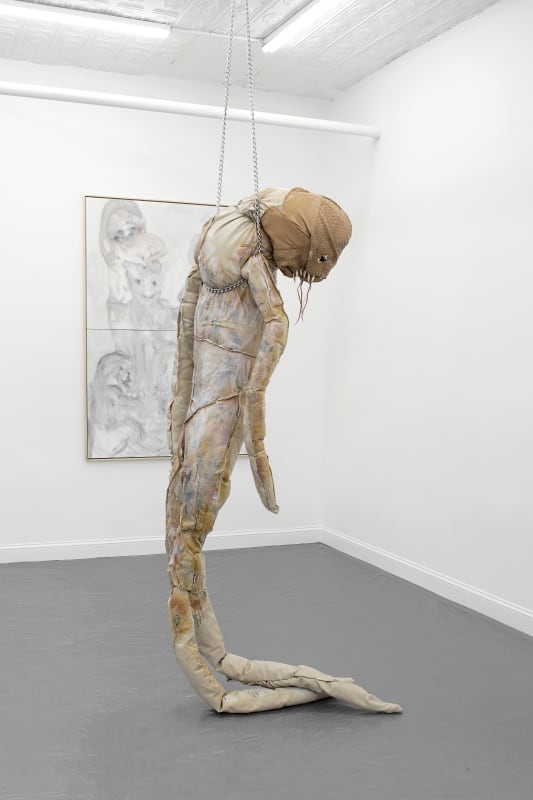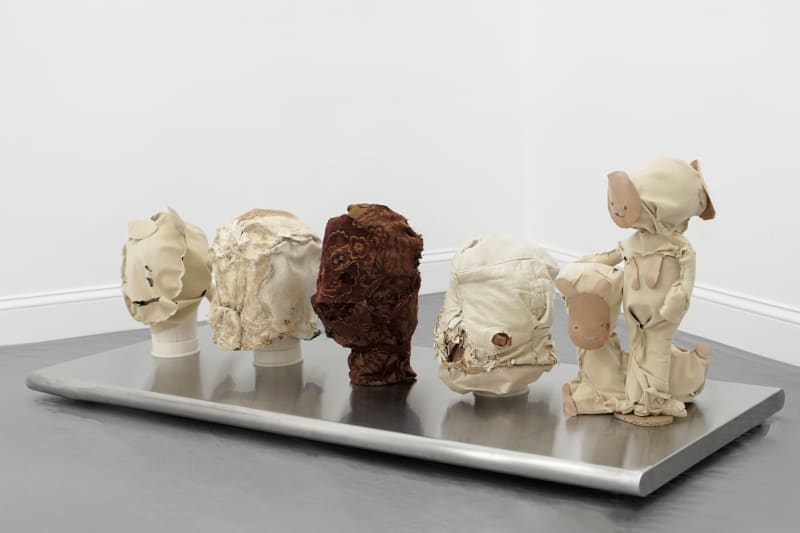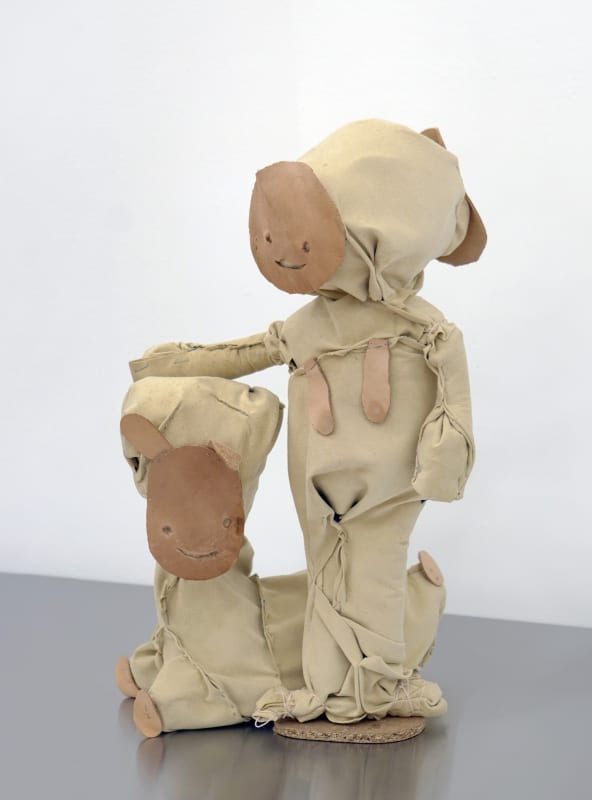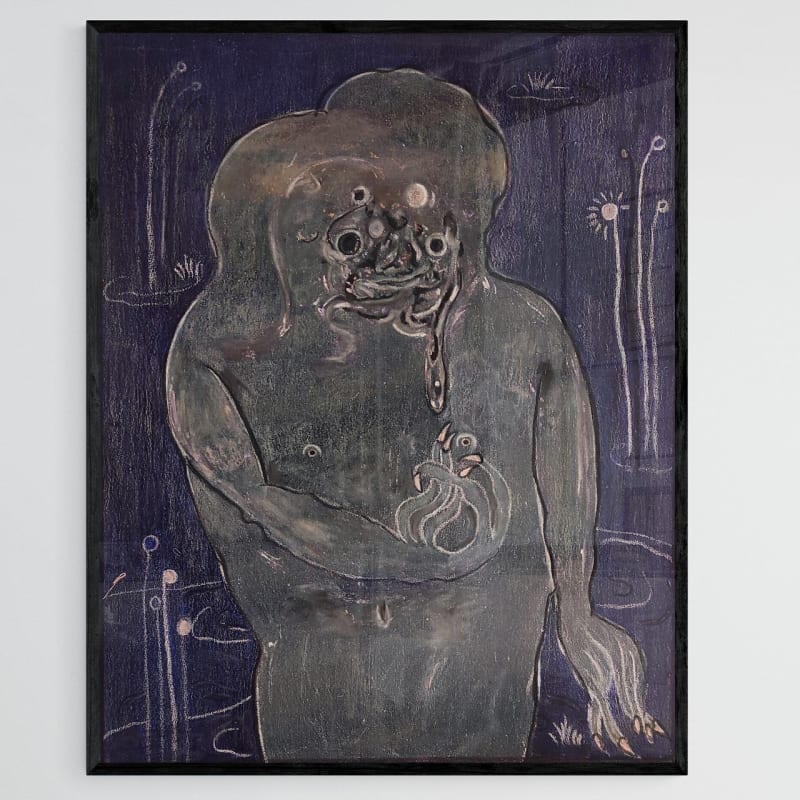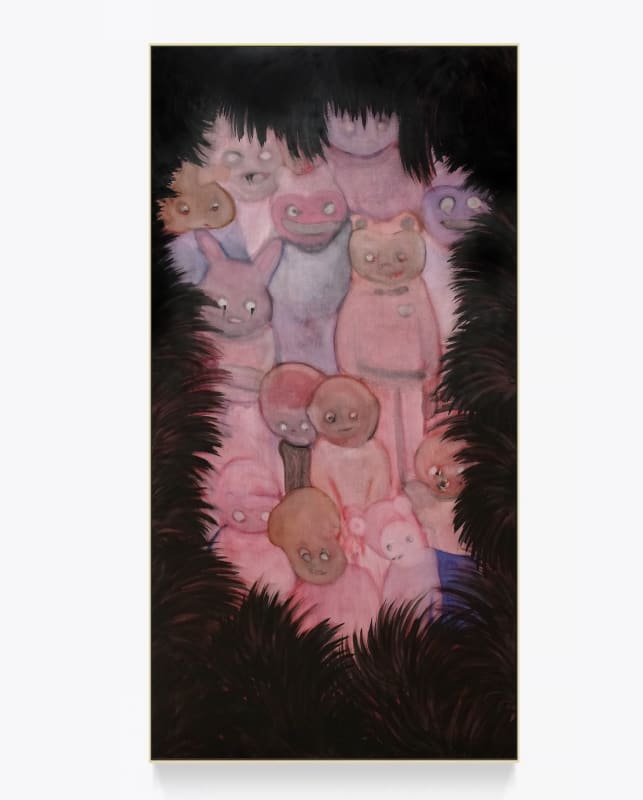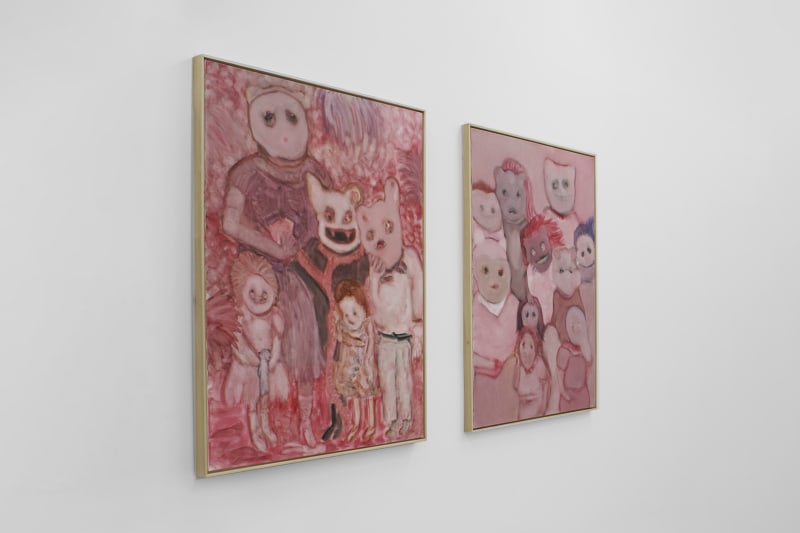A new project by Ilya Fedotov-Fedorov is dedicated to loneliness and otherness. Exploring interspecies connections, the artist speaks about disassociation with your own body, and attempts to become someone else. The exposition features paintings, textile sculptures and installations of masks.
The project's title refers to the ability to grow and change by losing part of oneself. According to the curator and researcher Jeannette Bishops, the process of skin changing is natural for all animals. Humans leave behind a mostly invisible trail of scales of dead epidermis, while snakes shed a layer of keratinized and dead skin entirely. It is said that they do this for two reasons: to ensure further growth and to get rid of parasites that may have attached to the old skin.
Excerpt from the accompanying text:
His paintings and sculptures further show his attempt to interpret and rewrite the plasticity of divisions between human and animal, and abandoning categorization or correlation. In the gallery, Fedotov-Fedorov’s creatures gaze down onto us from all around, often tucking their face behind a mask. The mask, an object that can serve many purposes, seems to function as a prop in the artist’ exploration into the other or non-human experience.
Exploring fundamental questions about the structure of the human concept versus that of nature or animal, the philosophical theory offers ‘a method towards openness to and an appreciation of the existence of any particular entity as an instantiation of the inexhaustibly meaningful being as such.’ Again, Fedotov-Fedorov does not explore these philosophical issues didactically, rather his creatures appear to us as in a dream -or nightmare-. They derive their regenerative power from being liminal, floating between past and present, cute and terrifying, life and death. Are we as humans capable of perceiving the unique character of another creature and performing it? And by performing it, can we become it? As inhabitants of an industrialized and urbanized world, encounters with non domesticated creatures might feel uneasy, foreign, even uncanny. Fedotov-Fedorov’s work offers that the distance between us and the other can be bridged by embracing the inevitable discomfort of liminality and in-between-ness, like a snake changing its skin. — Jeanette Bisschops.
More information: https://fragment.gallery/exhibitions/54-snake-changing-skin/overview/
